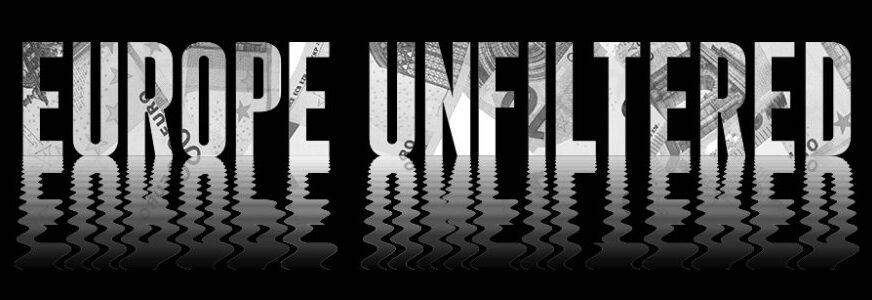Henryk Adam Aleksander Pius Sienkiewicz was probably the most famous of all Polish writers, dearly beloved in his patria. The first to get a Nobel Prize in literature.
His works mostly sent the same message: even in times of defeat and sorrow (Poland as a country didn’t exist during Sienkiewicz Sr.’s life), there was still a place for hope and pride.
His main protagonists, like Jan Skrzetuski or Michał Wołodyjowski, were all men of honour, daring and selfless, loyal patriots, representing noble ideas … or occasionally, though they might have started out like unruly, maybe even reckless young men, like Andrzej Kmicic in The Deluge, they underwent a complete moral transformation and turned into heroes.
His modern-day descendant maybe failed to read those masterpieces.
Or, unlike millions of Poles, he wasn’t inspired by them. (To understand how much others were: Bartłomiej was called ‘young master’ in his great-grandfather’s former village and the tourist guides used to point at him, telling the visitors of the Sienkiewicz-museum that he was the descendant of the great writer.)
Bartłomiej Sienkiewicz might have started his political career as a young patriot in Cracow’s democratic opposition movement, back in Communist times, handing out leaflets and other underground publications, portraying the duplicity of the system, but that’s a past long gone.
Barely has the Iron Curtain fallen, Sienkiewicz was already in the ranks of the Office of State Protection (UOP), with the rank of lieutenant-colonel, as senior adviser. He kept that job until 2002. While at it, he found time to be a co-founder and deputy director of the Centre for Eastern Studies.
In the early 2000s, Sienkiewicz temporarily left state administration, to try his luck in business.
In the period that, in his CV is humbly presented as ‘private sector consultant’, he founded an analytical company (first called ASBS Othago, then renamed Salvor I Wspólnicy) dealing with investment risk assessment and market research.
A part humbly ignored in his CV is that in this period, Salvor earned almost PLN9 million. (Other sources put the amount at 13 million.) Its success probably had nothing to do with the extensive knowledge Sienkiewicz accumulated during his decade in the field of security and energy politics, especially in the post-Soviet area, also having had unlimited access to classified information.
It also must have coincidental that the company quickly gained lucrative contracts with various state- and state-linked entities, like Orlen, a Polish multinational oil refiner and natural gas trader. ASBS (that stands for System Analysis Bartłomiej Sienkiewicz) produced analyses like ‘Non-financial risks of upstream investments in Venezuela’, earning at least PLN50,000 a month, plus various allowances.
The biggest deal was a PLN 3 million contract on consultations on a gas terminal, that didn’t get built in the end – yet ASBS got its money.
Sienkiewicz must have lived a lavish life as in his wealth declaration (attached to his CV as MEP) he didn’t indicate this sum, only a meagre amount as salary received as minister.
To keep some links to the public sector, he gave lectures at the National Defence Academy (2003-2005).
He couldn’t stay away for long, though.
In Donald Tusk’s first cabinet (2013 -2014) he was minister of internal affairs and, mainly thanks to his 12-year tenure at UOP, got appointed as coordinator of the special services, that meant oversight over all of Poland’s services: the Internal Security Agency (AWB), the Foreign Intelligence Agency (AW), the Central Anti-Corruption Office (CBA) and military intelligence.
When in ministerial position, he applied Soviet-style tactics to silence the opposition.
In June 2014, still under Sienkiewicz’s tenure, units of the AWB raided the editorial office of Wprost, a weekly news magazine (in fact, one of the most cited media outlets in Poland back then).
The reasons?
Days earlier, Wprost published a series of transcripts of secret recordings. The tapes involved senior Polish government officials, including back-then and now-again Minister of Foreign Affairs Radoslaw Sikorski, discussing delicate matters in restaurants all around Warsaw. (Sikorski, for example, didn’t spare British Prime Minister David Cameron.)
There was another conversation on record, putting Sienkiewicz himself into an unpleasant situation. In between two courses at Warsaw’s famous ‘Sowa i Przyjaciele’, Sienkiewicz and Marek Belka (president of Poland’s Central Bank, NBP) discussed about possible ways the bank could have possibly propped up the national economy. Something that, at least according to Sienkiewicz’s words, could have helped the governing party to win re-election in 2015.
Based on the recordings, Mr. Belka agreed to the requests (though the Central Bank should remain independent of politics), with two conditions: the finance minister at the time, Jacek Rostowski, be replaced by a more apolitical figure and the authority of the Monetary Policy Council be limited.
And so, it happened.
To make matters worse, Sienkiewicz declared that the ‘Polish state existed only in theory’.
Good ol’ Henryk would have probably cried hearing that sentence from his own descendant.
No wonder AWB tried to get hold of those recordings.
In the headquarters of Wprost, the events escalated into physical assault when chief editor Sylwester Latkowski refused to hand over the computers of the agency to the agents of the secret service, who tried to seize those without a warrant.
As one journalist witnessing the events put it, ‘a blatant power play against the media where the secret service openly interfered with the freedom of speech in its most sensitive aspect … we cannot remain indifferent to this brutal act where journalistic autonomy was compromised’.
The intervention didn’t stop the scandal from spreading.
In the end, the Tusk government resigned, paving the way for new elections (and for Tusk to accept an appointment as president of the European Council). In 2015, Tusk’s/Sienkiewicz’s Civic Platform lost every possible election, with both the Sejm and the presidency going to the Law and Justice (PiS) Party.
Sienkiewicz was not out of trouble, though, so he couldn’t enjoy his new position (director of the party’s think tank, the Civic Institute).
Come May 2015, and Telewizja Republika published another recording.
This time it was about Sienkiewicz.
Paweł Wojtunik, then-head of the CBA shared juicy gossips with politician Elżbieta Bieńkowska about his former boss. Including a story about how ‘Bartek’ Sienkiewicz ordered the arson of a booth in front of the Russian embassy during a demonstration. Bieńkowska can be heard laughing and repeating ‘what balls’ several times.
In due time, Sienkiewicz resigned from his post at the Civic Institute.
He was rumoured to seek a seat on the supervisory board of PGNiG or EuRoPol Gaz, but supposedly ended up working in Ukraine. Officially for the Open Dialogue Foundation – unofficially as an advisor for the Ukrainian government, surprise, in the energy sector.
In 2023, the eight-year rule of the PiS ended, and Sienkiewicz returned with vengeance and with the declared aim to cleanse Polish state media from the influence of the previous government, once he got appointed as Minister of Culture and National Heritage.
As a man on a mission, he didn’t refrain from using all means to reach his goal, a la Machiavelli.
The ink hasn’t dried on his letter of appointment, he already caused a great uproar.
Sienkiewicz might be a former journalist and great advocate of freedom of speech (he received a prestigious award for his publications in 2012), yet, with one stroke of his ministerial pen, he dismissed the existing members of the supervisory boards and management boards of Polish state media: television, radio and Polish Press Agency, too.
To make sure that those organizations all marched in the right direction and got ‘depoliticized’, he appointed new boards to them. And, to ensure a quick and effective transition, the public channels were taken off the air, simply stopping broadcasting (on occasions cutting off the presenters mid-sentence).
When this step proved insufficient and the government failed to seize control over public media, Sienkiewicz started liquidations processes for those entities. He claimed that as the representative of the sole shareholder (the State Treasury), he had the right to act as an owner of those companies.
Ignore the tiny detail that though the law (Broadcasting Act of 26 December 1992) obliged the Minister of the Treasury to establish those companies as entities with a specific mission – but didn’t authorize him to liquidate them.
The step prompted even the President’s Office to express their opposition, characterizing the move as ‘an aggressive assault’. The Helsinki Commission also voiced concerns of the legality of the move. President Andrzej Duda called on the government to obey the law, adding that ‘a political goal cannot constitute an excuse for violating constitutional principles and the law’.
His reign at the culture ministry was cut short when Mr. Sienkiewicz won a seat in the European Parliament.
If his great-grandfather was right, there might be still hope for Mr. Sienkiewicz, like there was for Pan Andrzej in The Deluge, would he find the right way after a through soul-searching.
Maybe his tenure in the European Parliament will give him time to re-evaluate his views on rule of law.

